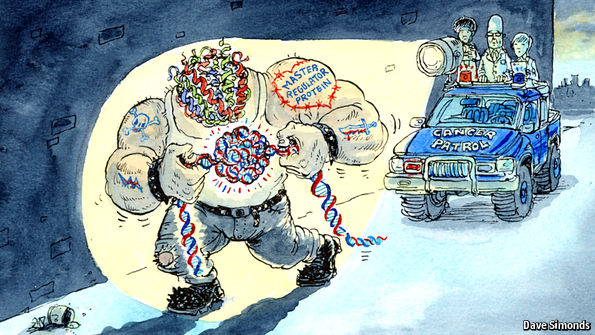A new type of molecular medicine may be needed to halt cancers

ONE of the most important medical insights of recent decades is that cancers are triggered by genetic mutations. Cashing that insight in clinically, to improve treatments, has, however, been hard. A recent study of 2,600 patients at the M.D. Anderson Cancer Centre in Houston, Texas, showed that genetic analysis permitted only 6.4% of those suffering to be paired with a drug aimed specifically at the mutation deemed responsible. The reason is that there are only a few common cancer-triggering mutations, and drugs to deal with them. Other triggering mutations are numerous, but rare—so rare that no treatment is known nor, given the economics of drug discovery, is one likely to be sought.
Facts such as these have led many cancer biologists to question how useful the gene-led approach to understanding and treating cancer actually is. And some have gone further than mere questioning. One such is Andrea Califano of Columbia University, in New York. He observes that, regardless of the triggering mutation, the pattern of gene expression—and associated protein activity—that sustains a tumour is, for a given type of cancer, almost identical from patient to…Continue reading
Source: Economist




